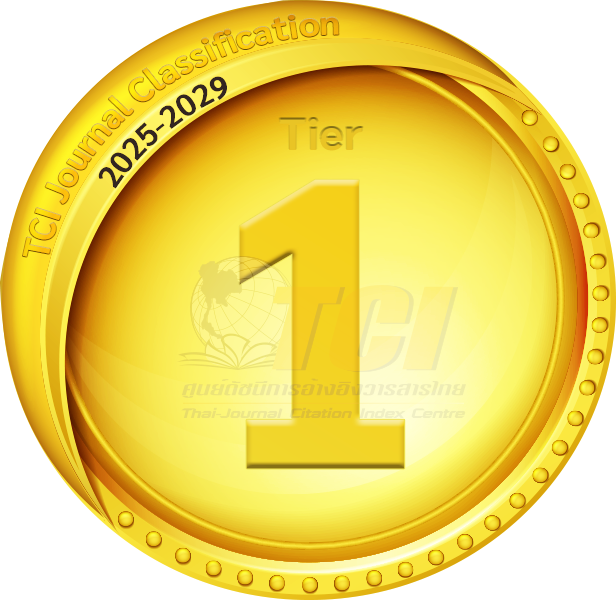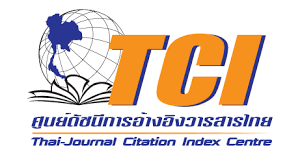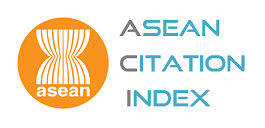Editor’s Note
Abstract
We are already in the middle of 2018 as well as completing half of the year, yet time is running away from us quickly, in a split seconds without our noticing. A baby becoming a toddler, a youth becomes an adult. Well, this is life. Life is not short as some people said, nor it is long as some people wishes. Thus it is such a waste if one failed to benefit the latter without learning lots of knowledge in life.
This journal is still in its growing phase, hence we are committed to publish only quality writings to ensure our survival in this field. In order to reaffirm our pledge to continue producing such good journals, that is why up until now we never failed to issue the journal twice a year since our breakthrough year. The effort from our team out there to seek for good quality publications is highly appreciated and we look forward for this enthusiasm for many years to come.
The journal kickstarts with a taboo issue as perceived in Thailand, whereby Sasiphattra Siriwato conveys the message on behalf of the women in the country on the survey of sexual assault victim. The paper opens its journey by quoting nearly 35 percent of women around the world have experienced physical, sexual or psychological violence by their partner or non-partner during their lifetime. The data collected throughout Thailand with a positive feedbacks from 4,400 households. Amongst them, only two (2) cases were reported by the critical response by the respondents on relating to threaten to sexual assault. The author observes and come to a conclusion that women in Thailand may not feel confident and uncomfortable to come forward to report on this matter.
The next paper discusses on the prolonged saga of labour trafficking in Thailand’s fishing industry. Charupol Ruangsuwan in detail argues about the root causes of this issue, where it is dubbed as a long chain of structural problems involving major issues such as economic, political, and social aspects. The long lists of problems in the fishing industry such as the labor scarcity in the fishing industry due to the departures of the Thai laborers, provide opportunities for foreigners. However, the fact that Thai law existence to protect jobs for the Thais, this situation give birth to the brokers, who are the one in-charge of steering the addition of the foreign labors to the Thailand’s fish industry via irregular channels.
Next, Bruce Weeks comes up with the idea to investigate the innovation and economic growth, relating to the case for Business Method Patents in China. Economic growth is based on innovations replacing old technologies, which drive entrepreneurial investments, creating change or creative destruction. Sustained economic growth comes not from imitation but technological innovation. For instance, in the United States software patent law expanded to recognize software patents including business method patents, inventions based on computer-based algorithms and so forth. The result was a rise in industrial and commercial business method patents producing a beneficial economic benefit. The rush to exploit the enlargement in business method patents principles, and the new flood of inventions seeking protection that followed challenged the evolving rules of software patents and limiting modifications in the theories and procedures governing business method patents.
Then, Somkid Pochanapan and friends discover something specials, about the correlation between the effects of practicising yoga on the quality of live of HIV/AIDS patients. There are seven (7) writers altogether, whom forged a great teamwork to produce this kind of writing. There are 50 subjects taken into study for this research, divided into two (2) groups, 25 subjects each. The results showes that these patients who practiced yoga other than the normal treatment improved their mental and physical well-being, therefore the writers urge for the promotion of yoga to those HIV/AIDS patients.
The fifth article from Sridhar Ryalie, is about culture. The author discusses about the challenges and opportunities in Thailand, in striving for a design innovation-based culture. He later added that models of design education currently in practice in Thailand have borrowed heavily from the West and have not been very effective in cultivating a culture of innovation. Thus, the idea is that there should be a consensus to erect a new model of education so that this loophole could be addressed accordingly.
Last but not least, a study by Loeurt To about community participation in education in Samlot District, Battambang Province in Cambodia. This study was directed to explore the nature of community participation in education in a remote district in Cambodia. A case study approach was used to explore the issue and qualitative research methods was employed for data collection. The result from the study suggests that a shift in focus (on the part of the government, non-governmental organizations and education stakeholders) to support parental involvement in children’s learning, rather than the traditional resource mobilisation, may better promote children’s learning. The author then urges for further research on parental involvement in children’s learning to be conducted in the near future.
Here we present, six (6) articles to be read with full focus that demand a good understanding by the audiences out there as they are produced with extra care and due diligence by the authors. Therefore, no page shall be skipped or one deliberately jumps to other articles without completing the reading of the current article first. Then only we could gather a lot of information and knowledge, with this thorough reading.
In a nutshell, that is why journals such as RJSH exist: to create a bridge for knowledge-seekers (learners) with producers of knowledge (researchers). As the editorial team, we see this as our job: sharing new knowledge, including alternative ways of perceiving the complex issues that all of our societies face on a day-to-day basis.
We welcome your comments and, of course, your manuscripts. Links to our manuscript submission site can be found at RJSH Online Submission and Review System: www.rsu.ac.th/rjsh. We look forward to hearing from you.
Sincerely,
Anek Laothamatas
Editor-in-chief

Indexed in


Search